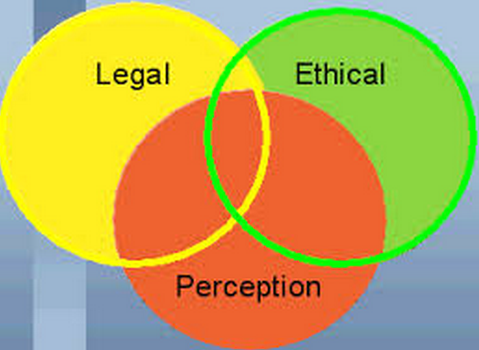Where are we?
Toyota's conduct in this case seems to me to be right in line with much of what the company appears to be doing elsewhere in its dealing with victims, Congress, NHTSA, and the DOJ: Technically legal it may be, but at the same time ethically questionable. And the PR department takes care of the perception.
************************************************************
"Toyota Motor Sales USA has been cleared of allegations that the company stole trade secrets from a Dallas market research firm, according to a legal industry publication. A Texas federal jury on Thursday cleared Toyota Motor Sales USA Inc. of misappropriating Rincon & Associates LLC’s proprietary methods for conducting a study of minority car buyers' preferences and habits.
The jury found Toyota never agreed to keep confidential the techniques Rincon uses to study the car-buying habits of Asian, Hispanic and African-American consumers, according to Law360.
Rincon handled research projects for Toyota in 2007 that included gathering the data. Rincon alleged that instead of renewing its contract to conduct a subsequent study, the automaker took its proprietary methodology and gave the contract to a different firm."
If Toyota corporate culture permits the [alleged] taking of proprietary business techniques simply because their owner had not signed a suitably protective contract...to me, that appears to be resoundingly unethical, but the jury said it was legal. The unethical conduct suggests a cavalier win-lose attitude with this supplier. In terms of Jewish ethics, Toyota has taken the position of saying "what is mine is mine, and what is yours is also mine." Maybe it suggests that TMA is in the yellow zone in the illustration above. What kind of example does this behavior give to the company's safety and products liability people? Although the conduct occurred way back in 2007, Toyota has been fighting this lawsuit all these years until now, almost undoubtedly because they thought that they could win. And they did, ethics be damned. So it sounds like their ethical awareness and conduct may not have improved since 2007. That's a serious question because it impacts public safety.
Based on everything I have learned about Toyota's behavior during the SUA recalls crisis, I think that there are at least some aspects, perhaps mainly in Japan, where Toyota's culture has been well into the red zone. I think that deterring this conduct for the sake of public safety requires strong external forces such as criminal penalities for executives. Maybe what is needed is a provision in auto safety legislation that forces automakers to designate a senior executive to sign off as the person responsible for product safety, similar to the executive sign-offs required for SEC filings. That way, we can avoid the problem, recently described by U.S. Attorney General Eric Holder, of the diffuse nature of executive responsibilities preventing prosecution for intentional deceit about safety defects. He questioned the adequacy of current law.
Here is an excerpt of Mr. Holder's remarks as quoted in the article For Some Big Companies, the Buck Stops Nowhere, in Corporate Crime Reporter. He is primarily referring to prosecution of financial executives, but I think it applies to executives in any large corporation charged with fraud:
“When it comes to more complex transactions ... a criminal prosecution of an individual can be difficult, more complicated, to mount,” Holder said.
“This is true for any number of reasons – from possible advice-of-counsel defenses, to the adequacy or inadequacy of written disclosures, to the difficulty to establish materiality and intent.”
“And in some instances, it is simply not possible to establish knowledge of a particular scheme on the part of a high-ranking executive who is far removed from a firm’s day-to-day operations.”
“This has been a source of frustration for the public for a long time,” Holder acknowledged. “I understand and share that frustration. But despite the commitment and tireless work of our prosecutors, we cannot bring cases unless, based upon the facts and the law, we believe that we are likely to succeed in court. That is consistent with the department’s long-standing principles of federal prosecution.”
“We must look deeper at these questions and several thoughts come to mind.”
“First, in an age when corporations are structured to blur lines of authority and prevent responsibility for individual business decisions from residing with a single person, we ought to consider whether the law provides an adequate means to hold the decision-makers at these firms properly accountable.”
